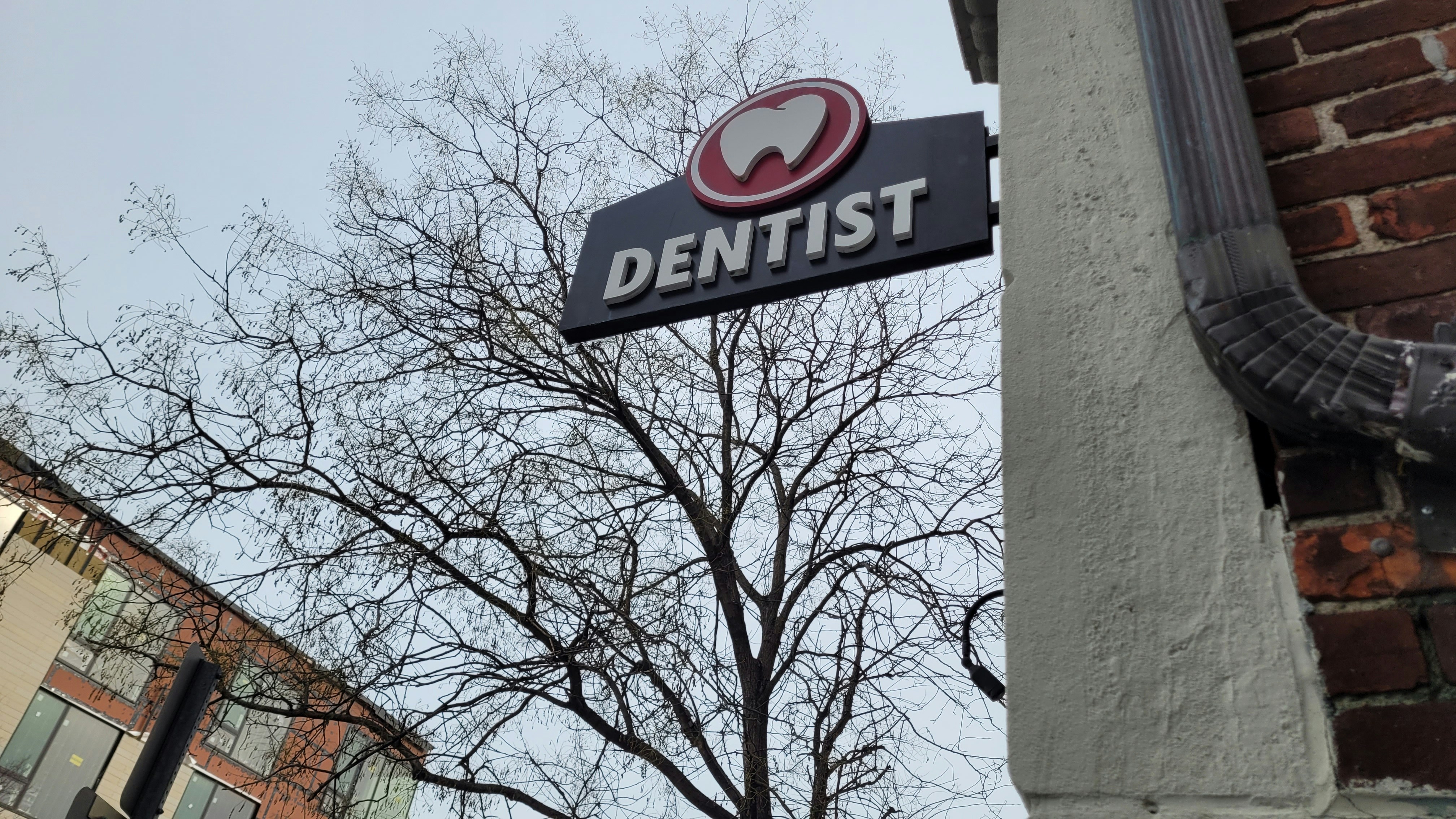

August 28, 2025
Looking for a dentist who specializes in dentures near you? The right expert can restore your smile, improve chewing, and boost confidence. This guide covers denture types, costs, and how to choose the best local specialist so you know exactly what to expect before booking an appointment.
Dentures are custom-made appliances that replace missing teeth. They improve chewing, speech, and appearance. Modern designs look natural and fit comfortably.
Complete Dentures: Replace all teeth in the upper or lower jaw, offering a full smile transformation.
Partial Dentures: Fill gaps by attaching to natural teeth, restoring stability and balance.
Implant-Supported Dentures: Anchored to implants in the jawbone, they provide maximum stability and prevent slipping.
Expertise in Custom Fitting: A specialist designs dentures that fit your bite and mouth precisely, avoiding discomfort or looseness.
Better Comfort and Function: They ensure you chew properly, speak clearly, and smile confidently.
Aesthetic Precision: Specialists consider face shape, gum line, and natural colour for realistic results.
Long-Term Care: Your mouth changes over time. A specialist makes necessary adjustments to keep dentures comfortable and functional.
Specialist vs. General Dentist: General dentists may offer dentures, but specialists bring deeper training and fewer long-term problems.

Tooth Pain or Loss: Multiple missing or painful teeth can be replaced with dentures to restore function. For patients seeking advanced dental care, Root Canal Treatment in Brookhaven can also help save damaged teeth and prevent further complications.
Chewing or Speaking Issues: Difficulty eating or slurred speech often signals the need for support.
Gum Problems or Bone Loss: Swelling, shifting teeth, or visible bone loss suggest dentures may help.
Frequent Dental Work Fails: If crowns or bridges no longer solve issues, dentures can provide a lasting fix.
Full Dentures: Replace an entire upper or lower set for a complete smile makeover.
Partial Dentures: Clip onto remaining teeth, preventing shifting and restoring balance.
Immediate Dentures: Placed the same day teeth are removed, offering instant results but may require adjustments.
Implant-Supported Dentures: Anchored with implants, they feel secure and prevent bone loss.
Overdentures: Fit over teeth or implants for stability while preserving underlying bone.
Step 1: Consultation A full exam determines which dentures best suit your needs.
Step 2: Impressions and Measurements Precise moulds ensure a comfortable, natural fit.
Step 3: Trial Fittings A wax model lets you test bite, shape, and appearance before final fabrication.
Step 4: Final Placement The dentures are fitted, with small adjustments made for comfort.
Step 5: Follow-Up Care Adjustment visits prevent sore spots and ensure proper function.
Costs vary by type, materials, and dentist’s expertise. Basic sets may start at a few hundred dollars, while premium or implant-supported dentures can reach several thousand.
Factors That Affect Price Extractions, quality of materials, and customisation influence final cost. Durable materials often save money long term.
Insurance Coverage Many dental plans cover part of the cost. Confirm details with your provider and ask about financing options.
Start with Local Search: Search dentist who specializes in dentures near me and review top-rated practices.
Check Credentials: Look for prosthodontists or dentists with extensive denture experience.
Read Reviews: Patient stories reveal how dentists handle fittings, adjustments, and care.
Ask About Technology: Modern techniques like digital impressions and implant-supported dentures improve results.
Book a Consultation: Face-to-face visits help you gauge trust, comfort, and professionalism.
Daily Cleaning: Brush with a soft brush and non-abrasive cleaner. Rinse well before wearing.
Handling and Storage: Keep dentures in water or soaking solution when not in use. Avoid hot water to prevent warping.
Routine Check-Ups: Regular visits allow adjustments and gum health monitoring.
Healthy Habits: Avoid overly hard foods and maintain oral hygiene for gums and tongue.
Convenience: Quick access for fittings, adjustments, and repairs.
Personalised Care: Local dentists know their patients and community, tailoring care accordingly.
Reliable Follow-Ups: Easy to book ongoing appointments for comfort and fit.
Long-Term Relationship: Trust builds over time, ensuring dependable denture care.
Final Thoughts: The right denture specialist transforms comfort, appearance, and daily life.
Take Action: Choose a dentist with proven expertise and ask the right questions.
Next Step: Schedule a consultation today and take the first step toward a healthier, more confident smile.






